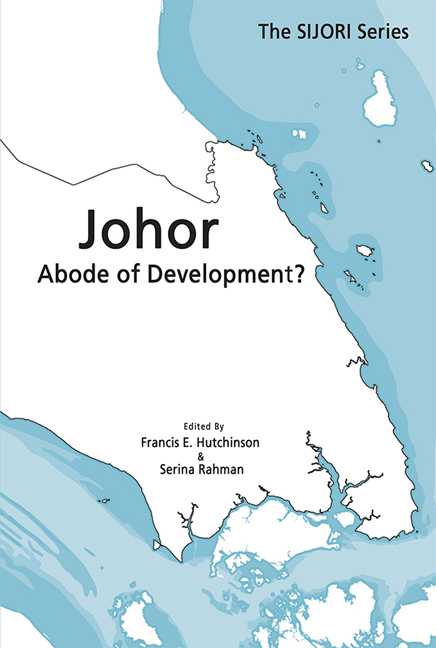8 - UMNO and Barisan Nasional in Johor: A Time-Bound Fixed Deposit?
Published online by Cambridge University Press: 24 November 2020
Summary
INTRODUCTION
With 3.7 million residents, Johor is the third most populated state in Malaysia. Its ample interior houses vast oil palm plantations, and its urban areas are host to sophisticated manufacturing operations as well as a growing services sector. However, beyond its contribution to the nation's economy, the state's place within Malaysia's political context is key.
After Sarawak, Johor is the state with the most members of parliament, ahead of even Selangor, the country's most populated state. The state has a deep historical relationship with two of the largest component parties of the former ruling coalition Barisan Nasional (BN)—the United Malays National Organization (UMNO) and the Malaysian Chinese Association (MCA).
Johor's diverse ethnic composition has lent itself to the coalition style of politics adopted by BN and, up until Malaysia's 14th General Elections (GE-14), the state consistently delivered overwhelming parliamentary and state assembly majorities to the former ruling coalition. Indeed, relative to its performance elsewhere in the country, support levels for the former ruling coalition were consistently ten per cent higher in the state, earning Johor the sobriquet of a “fixed deposit” for BN.
However, as in the rest of the country, Barisan Nasional's performance began to decline in Johor after 2008 and, particularly, 2013. In the run-up to GE-14, the former ruling coalition was looking weak in the state, particularly in urban, semi-urban, and mixed rural seats.
The state's size, prestige, and ethnic heterogeneity made it of interest to other parties. The DAP had been active in urban and Chinese-majority areas in the state since the 1960s. Following schisms in the Islamic party PAS and UMNO in 2015, Johor's sizeable Malay population was important for fledgling parties such as Parti Pribumi Bersatu Malaysia (PPBM) and Parti Amanah Negara (Amanah).
Consequently, the opposition coalition, Pakatan Harapan (PH) declared the state a key battleground for the 2018 elections and made sure to deploy a number of heavy hitters to contest in key constituencies. Nonetheless, the conventional wisdom going into GE-14 was that although BN was looking vulnerable, the long track record and advantages of incumbency meant that they would still retain the state.
- Type
- Chapter
- Information
- JohorAbode of Development?, pp. 214 - 237Publisher: ISEAS–Yusof Ishak InstitutePrint publication year: 2020



